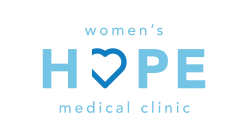Fueling your body with the right foods while pregnant is essential. With nausea being common during early pregnancy, it’s normal for you to start experiencing unusual cravings and even aversions to certain foods. But now your body is in charge of nourishing a second life- one that is growing and developing rapidly every day.
Indulging in the occasional sugary or salty craving is more than okay, as long as you are continuing to take in the necessary amount of nutrients that you and your baby both need.

Calories and Weight Gain
As your pregnancy progresses, your calorie needs will increase. Energy is needed for the growth of maternal tissue, as well as the growth of the placenta, which provides oxygen and nutrients directly to your developing baby. According to the American Pregnancy Association, the recommended weight gain is 2 to 4 pounds during the first trimester and approximately 1 pound per week during the second and third trimesters.
Proper weight gain is also crucial for the health of your growing baby. Gaining more than the recommended amount of weight can lead to delivery complications and childhood obesity. Studies show that it can even increase your chances for gestational diabetes. One way of staying within the recommended level of weight gain is to eat a balanced diet while limiting added sugars and fats found in soft drinks, desserts, fried foods, and fatty meats (CDC).
Protein
In addition to a higher caloric intake, adequate protein consumption is critical for your baby’s growth. The recommended dietary allowance (RDA) for pregnant women increases by 25 grams for a total recommended intake of 71 grams per day. Protein-rich foods include beef, fish, poultry, beans, peanut butter, eggs, nuts, and milk.
Folic Acid and Iron
During pregnancy, your body is producing more blood to support the growth of your baby. If you aren’t getting enough iron or folate, your body might not be able to produce the amount of red blood cells that it needs to keep up with the increased blood supply. Anemia, or iron deficiency, is common among pregnant women. Maintaining healthy levels of these minerals begins with the diet, but supplementation is also strongly encouraged.
Good sources of iron and folate include dark leafy green vegetables, brown rice, nuts and seeds, dried fruit, eggs, fish, and meat. According to the FDA, pregnant women should be taking in between 400 and 800 micrograms of folic acid and between 30 and 60 milligrams of iron daily.
Vitamin C supplements can assist with iron absorption as well. (Disclaimer: Prenatal supplements containing iron can cause nausea when taken on an empty stomach, so the best time to take them is at night after a meal.)
Hydration, Hydration!
Water plays an important role in aiding digestion, but it also contributes to the formation of amniotic fluid, which cushions and protects your baby throughout development. According to the American College of Obstetricians and Gynecologists, pregnant women should be drinking an average of 10 cups (or 80 ounces) of water daily to maintain a healthy fetal environment.
“Iron and B12/Folate Diet Advice.” Haiderian, https://www.haiderian.co.uk/info.aspx?p=15.
“Pregnancy and Nutrition.” Medline Plus, U.S. National Library of Medicine, https://medlineplus.gov/pregnancyandnutrition.html.
“Pregnancy Nutrition: Healthy Eating While Pregnant.” American Pregnancy Association, https://americanpregnancy.org/healthy-pregnancy/pregnancy-health-wellness/pregnancy-nutrition/.
“Weight Gain During Pregnancy.” Centers for Disease Control and Prevention, https://www.cdc.gov/reproductivehealth/maternalinfanthealth/pregnancy-weight-gain.htm.
